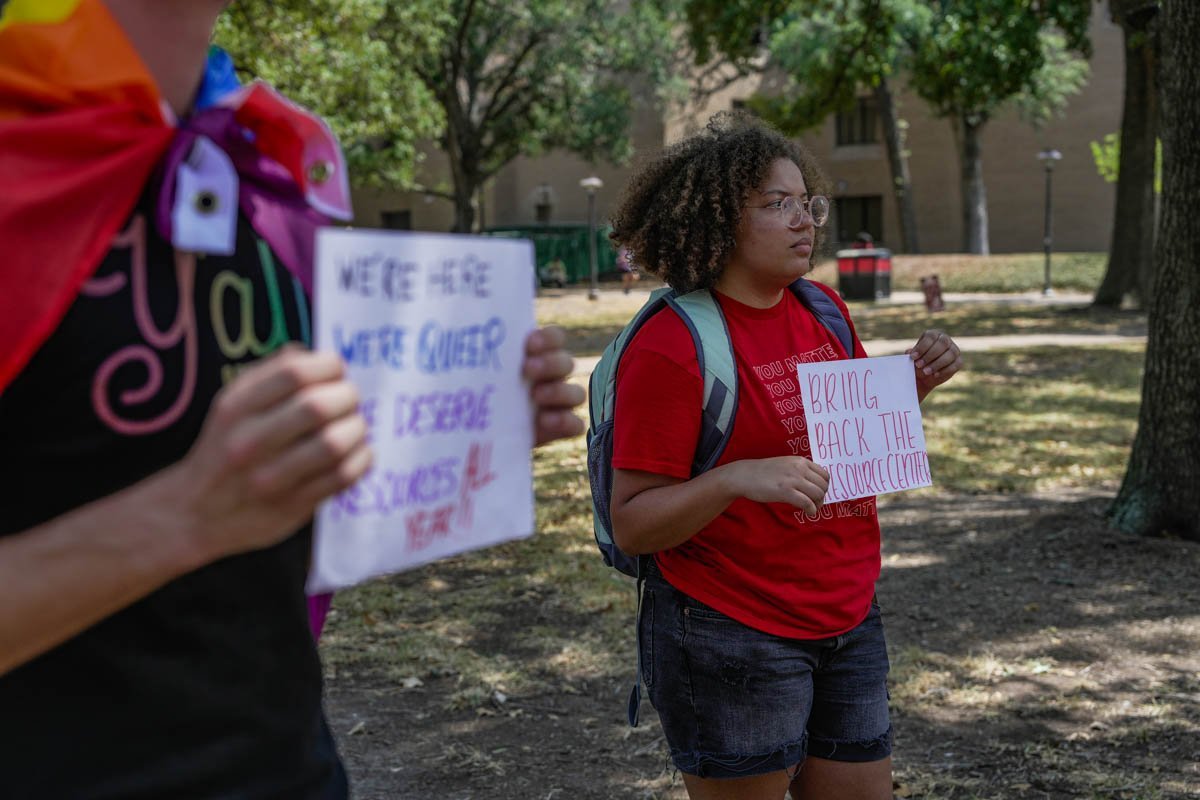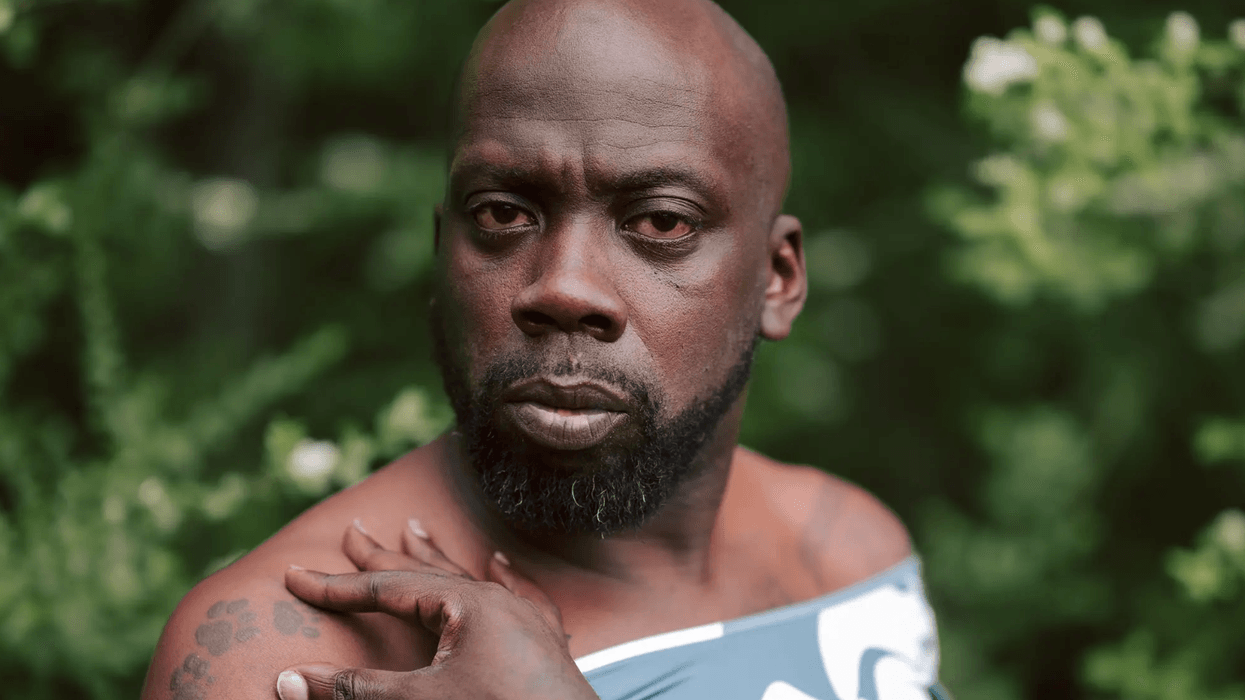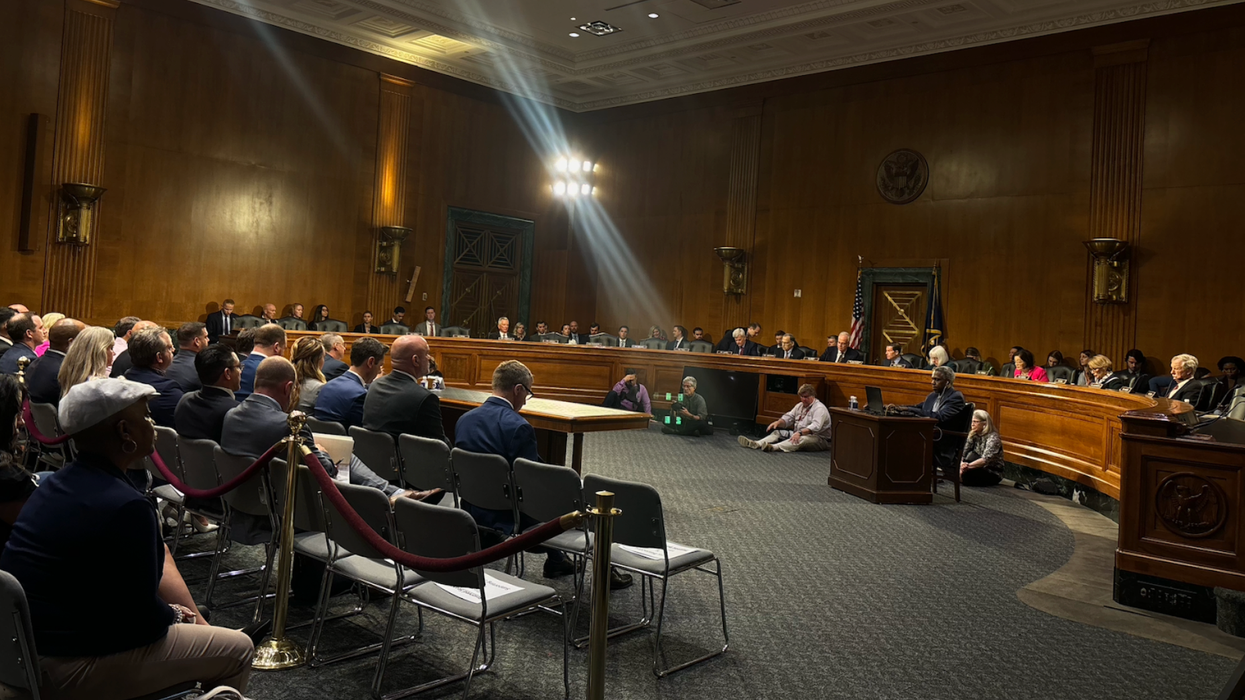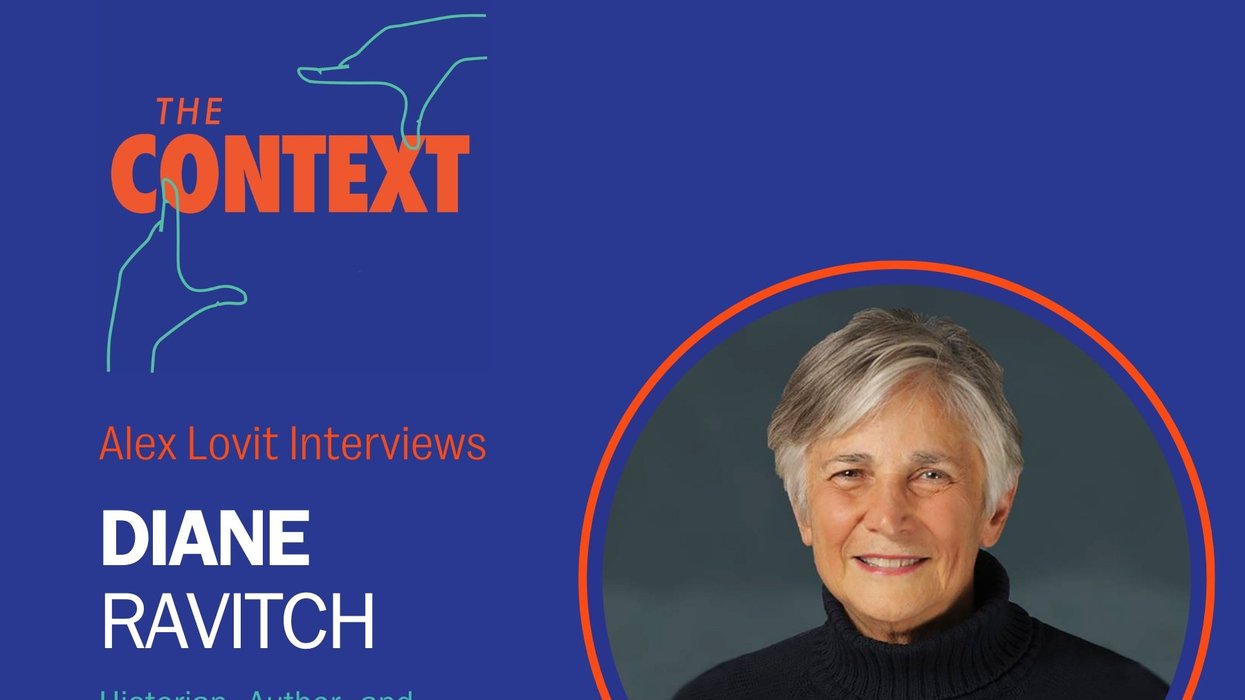It may seem strange finding strait-laced columnist David Brooks at the center of a circle of several hundred community activists, welcoming them to a touchy-feely gathering about repairing the torn fabric of American life.
But that's where the conservative New York Times op-ed voice was Tuesday, launching a three-day gathering dubbed "Weave the People" that brought several hundred "weavers" to Washington – people who are working in communities across the country to bridge social, economic and political divides.
Those divides are among the core causes of the dysfunctional political environment that the democracy reform movement is trying to address.
The conference, in an old marketplace building a couple of miles from Capitol Hill, included speeches made from a round stage, a roster of smaller discussions, artists at work amid the talking and even yarn for people literally yearning to weave.
For Brooks it is both a personal and professional journey. He described in raw terms how, having reached the pinnacle of his profession, he was left in a valley of loneliness. "Our culture is built on a series of lies that detach us from one another," he lamented in his keynote speech.
Among them: People need only rely on themselves, and career success can make people happy.
Sign up for The Fulcrum newsletter
Brooks said that by 2013 his marriage was over, he had alienated many friends and all he did was work – his apartment silverware drawer filled with sticky notes and stationary in place of plates in his cupboards. "You think you are playing the game, but the game is playing you. You live a life that is unsustainable," he said.
Brooks, who now runs the Aspen Institute's "Weave: The Social Fabric Project," said his story is reflected across the country:
- 35 percent of Americans older than 45 report being chronically lonely.
- 55 percent say no one knows them well.
- Suicide has increased by 30 percent in the past two decades and by 70 percent among teens just in this decade.
- The share of people reporting trust in their neighbors has been cut in half in a generation, to just 32 percent now – and only 19 percent of millennials.
Brooks' argument is similar to one made almost 25 years ago by Harvard's Robert Putnam in "Bowling Alone," which laid out the case for an unprecedented decline in the social and political fabric of the country after World War II. (The title came from research revealing a massive decline in bowling leagues but a surge in the number of people who said they went bowling.)





















